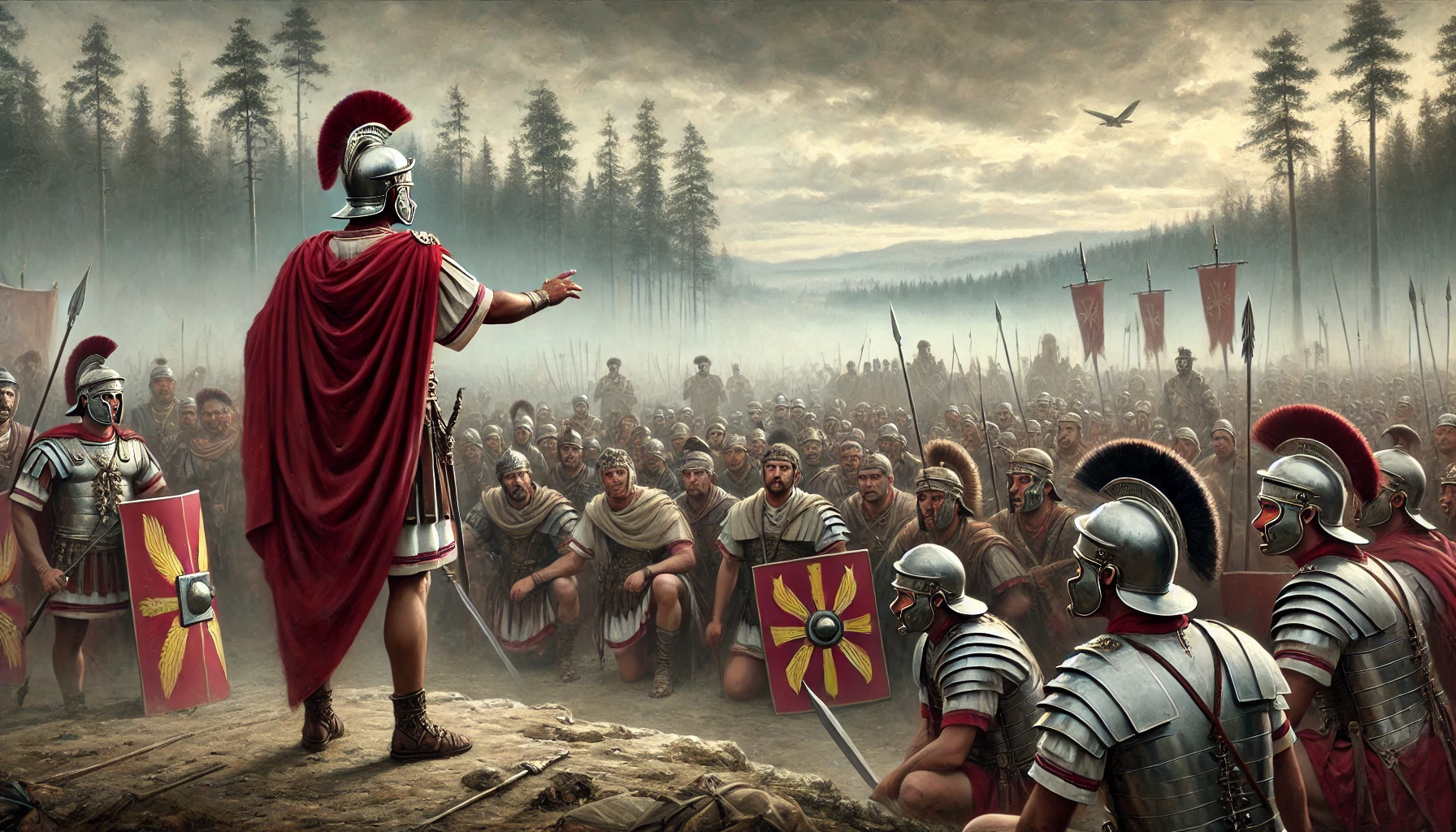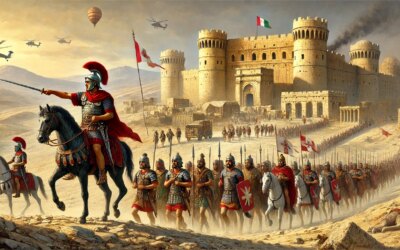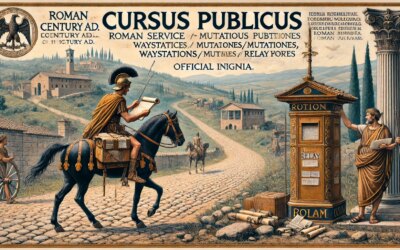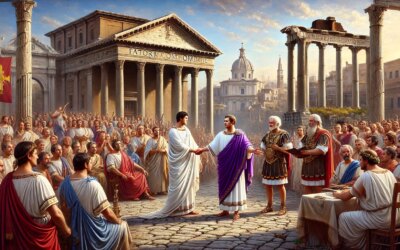Introduction: The Heir and the Avenger
In 14 AD, the Roman Empire mourned the death of Augustus and watched closely as his heir, Tiberius, ascended to power. But in the dense forests of Germania, a young general named Germanicus stood ready to claim his own legacy. The adopted son of Tiberius and grandson of Augustus by blood, Germanicus launched a series of campaigns beyond the Rhine—not merely for conquest, but for justice. His mission: to avenge the catastrophic defeat of Varus and restore Roman honor on the empire’s northern frontier.
The Shadow of Teutoburg
Five years earlier, in 9 AD, three Roman legions were annihilated in the Teutoburg Forest by Germanic tribes under the chieftain Arminius. It was one of Rome’s greatest military disasters. The loss stunned the empire and forced a strategic withdrawal to the Rhine. Germanicus, commanding the legions in Germania, was determined to confront the ghosts of that defeat and reassert Roman dominance across the shattered frontier.
Germanicus: Charismatic Commander
Germanicus was beloved by his soldiers and admired by the Roman people. Tall, noble, and eloquent, he embodied Roman virtues both martial and moral. Despite being overshadowed by Tiberius politically, he was given command in Germania to stabilize the region. His approach combined diplomacy with decisive military action—earning alliances with some tribes and crushing others.
The 14 AD Campaign: Into the Wilderness
In the wake of Augustus’s death, unrest brewed among the legions. Germanicus quelled a dangerous mutiny by personally negotiating with and punishing ringleaders—restoring discipline and loyalty. With his army intact and morale restored, he marched into Germania. His campaign in 14 AD was swift and strategic, including punitive raids, the construction of forts, and engagements with Arminius’s forces. Though terrain and weather favored the Germans, Germanicus’s leadership won crucial skirmishes.
Recovering the Eagles
Perhaps most symbolically, Germanicus recovered one of the lost legionary eagles from Teutoburg—a sacred military standard that had been paraded by the enemy as a symbol of Roman defeat. Its return to Roman hands stirred immense pride and validated his campaign. He also held funeral rites for the fallen of Varus’s army, locating the battlefield and burying the bones left to rot for years—an act of reverence that resonated across Rome.
The Political Undercurrents
Though popular with the troops and the public, Germanicus’s growing fame alarmed Tiberius. The emperor recalled him to Rome in 17 AD, offering a triumph but curbing further military action. Germanicus’s removal from the front left Germania unconquered, and some saw it as a betrayal of a man destined for greatness. His mysterious death in 19 AD, possibly by poison, only deepened suspicions and mythologized his memory.
Legacy and Legend
Germanicus’s German campaigns—though inconclusive strategically—restored Roman morale and redefined leadership in the early empire. His actions reinforced the border, exacted vengeance, and preserved Rome’s dignity. Statues, poems, and coins commemorated his deeds. Later emperors would invoke his name to legitimize their own rule, and Tacitus would immortalize him as the ideal Roman commander: virtuous, victorious, and tragically lost too soon.
Conclusion: A Prince of the People
In 14 AD, as Germanicus addressed his troops beneath the Germanic sky, he did more than prepare for battle—he rekindled the flame of Roman valor. His march beyond the Rhine was not merely a campaign, but a crusade to restore what had been shattered. Though the forests of Germania would never fully yield to Roman rule, Germanicus’s legacy endured—in the hearts of his legions and the annals of Roman glory.






